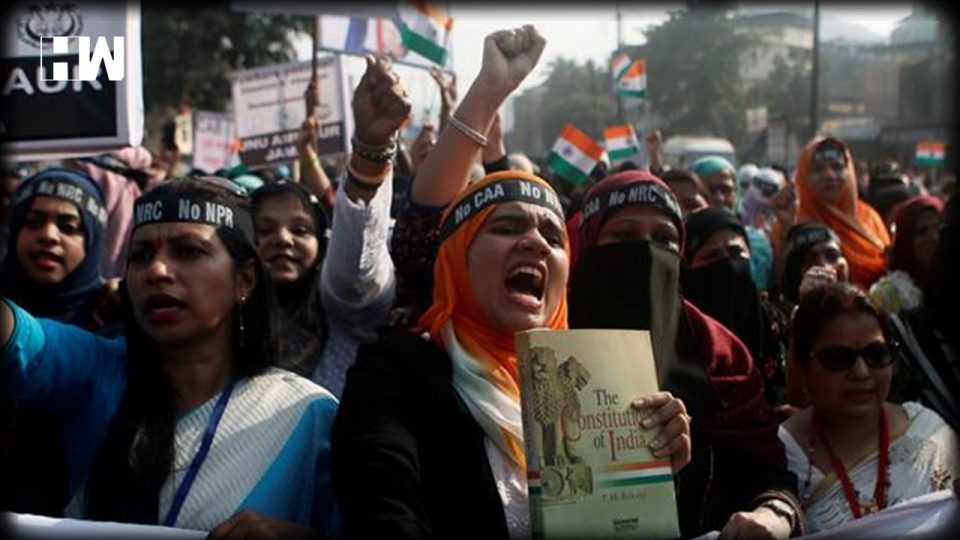The central government also said that the CAA is a limited legislative measure that will not impact any existing right of Indian citizens.
New Delhi| The CAA is “perfectly legal and constitutional”, the government today told the SC, asserting that the citizenship law was a matter concerning the sovereign power of parliament and “could not be questioned” before the court.
“Only parliament has got sovereign powers to legislate on citizenship,” said the government in a preliminary affidavit to the Supreme Court.
The CAA was passed by the Parliament in December but hasn’t been made operational yet in the wake of intense nationwide protests against what critics call is a discriminatory law.
The CAA makes it easier for religious minorities from three neighbouring Muslim-majority countries – Afghanistan, Pakistan and Bangladesh – who came to India before 2015 to get Indian citizenship – but not if they are Muslim.
When linked with the National Population Register (NPR) and a proposed National Register of Citizens (NRC), India’s Muslims, who form nearly 15 per cent of the country’s 1.3 billion population, fear the laws are aimed at marginalising them. They fear that they could become stateless, stripped of their nationality or their right to vote.
Also Read: Disenfranchisement may be first possible step after final NRC: officials
“The CAA does not impinge upon any existing rights of a citizen. It won’t affect the legal, democratic or secular rights of people,” it asserted, reiterating that the law does not take away citizenship but is about giving citizenship.
The CAA, said the government, did not relate to any Indian. “Neither does it create any citizenship to them nor takes it away,” it added.
The Centre said after considering the totality of factors, including factors of international geopolitics, the demographic profile of nations surrounding the particular neighbouring countries, the situation of or the presence of other persons of classified communities in other nations surrounding the neighbouring classified countries and the presence of state religions/theocratic regimes in other countries surrounding the neighbouring classified countries, “makes it amply clear that India represents the sole rational and logically feasible place to seek shelter for the said communities.”
The Centre in the affidavit said, “It is submitted that constitutional morality is not an unruly horse and cannot become an independent basis for challenging the constitutionality of validly enacted legislation.”
The Centre’s arguments are mainly two-pronged: one that it is a limited legislative measure that will not impact any existing right of Indian citizens and two, that there is a limited scope of judicial review on matters of immigration and citizenship since they fall in the executive domain of a sovereign government.
As an independent media platform, we do not take advertisements from governments and corporate houses. It is you, our readers, who have supported us on our journey to do honest and unbiased journalism. Please contribute, so that we can continue to do the same in future.

